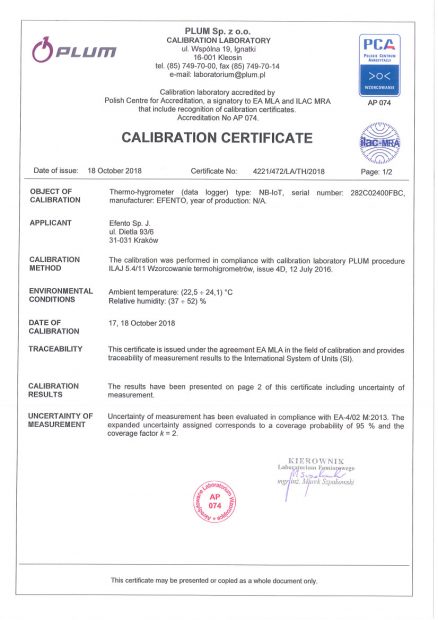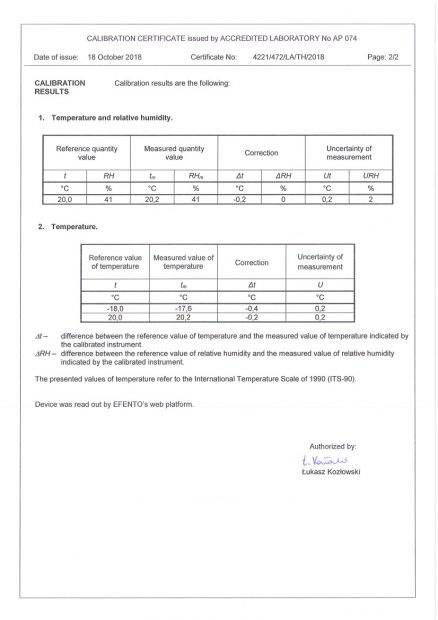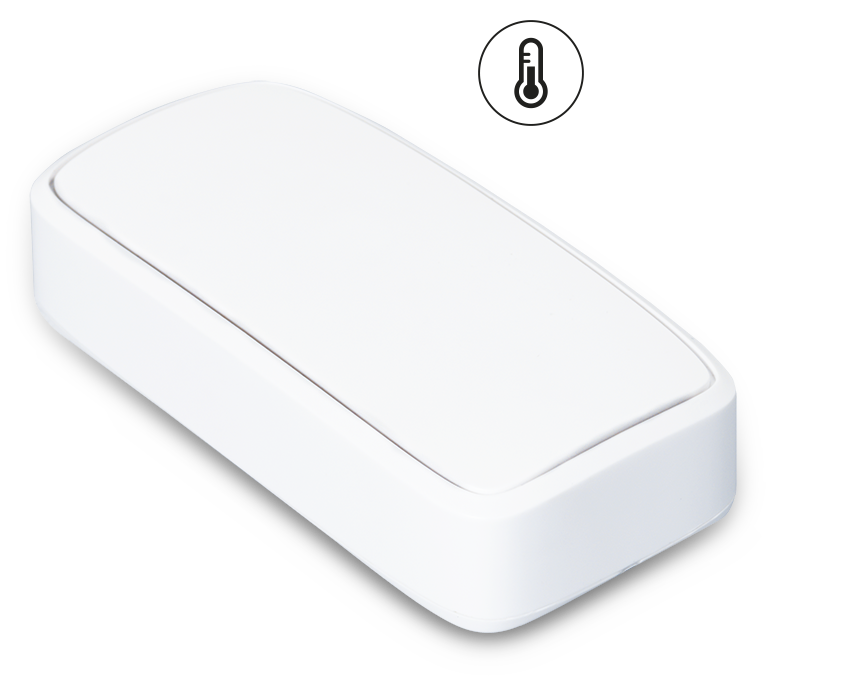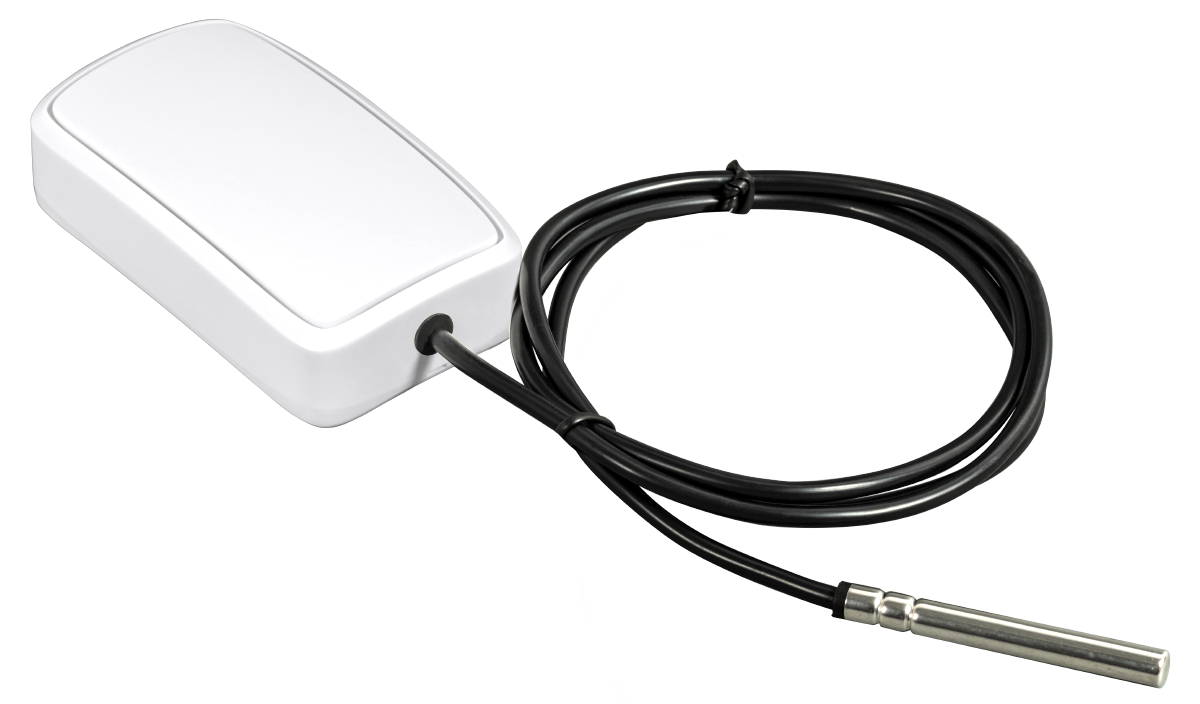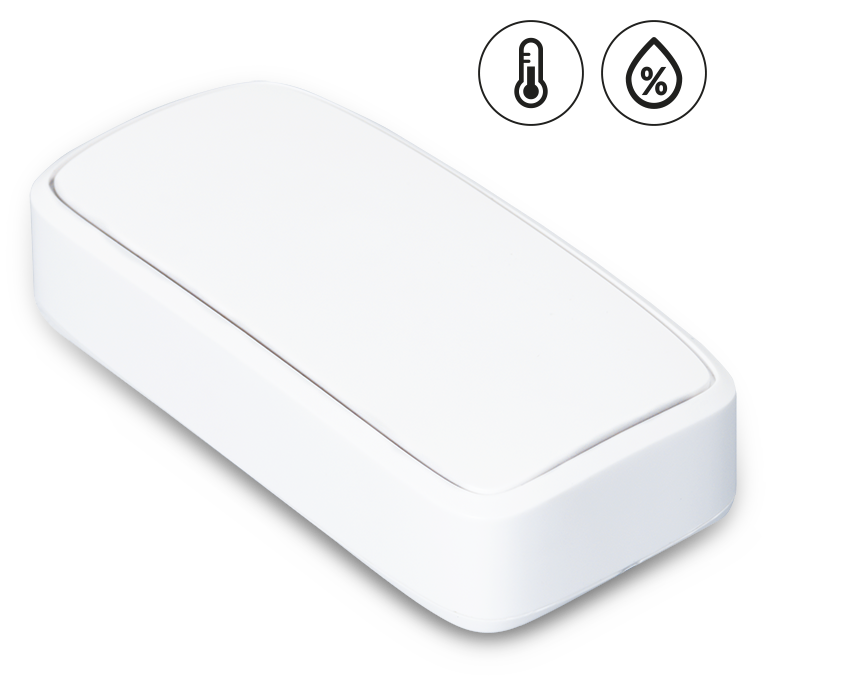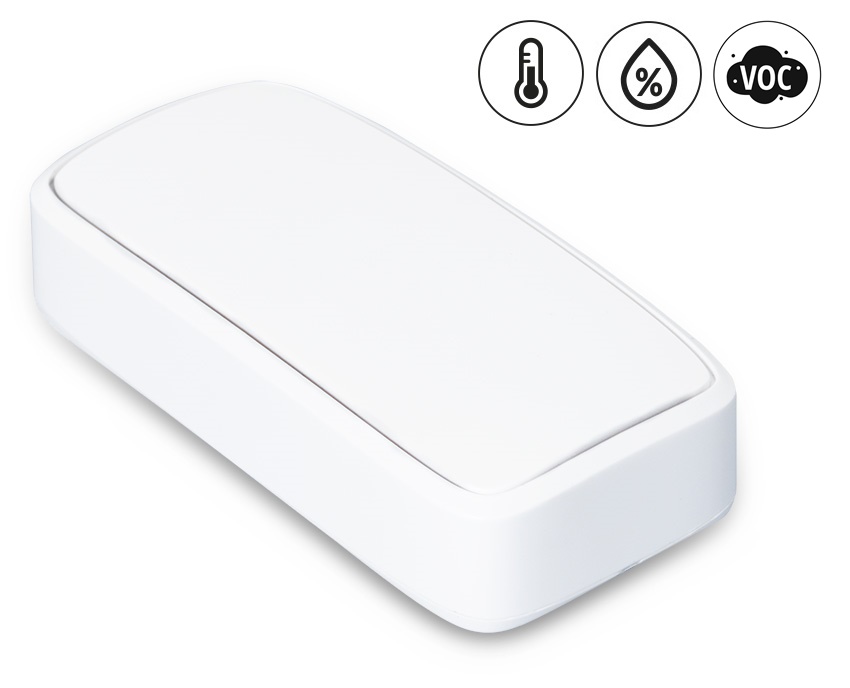At the client’s request, the laboratories we cooperate with can perform calibration at any points in the range -10 to 70°C and 0 to 94% RH. All measuring devices used in the calibration process are calibrated with reference to the standards of the Central Office of Measures.
As recommended, sensor calibration should take place either at two extreme points of the range in which the sensor will work (e.g. for sensors monitoring the temperature of vaccines 2°C and 8°C) or in the middle of this range (in the case of sensors monitoring the operation of refrigerators it will be 5°C). If the range in which the sensor will operate is relatively narrow, the calibration of the device at the point being the center of the range is sufficient. Therefore, for instance, sensors which monitor the operation of medical refrigerators in which vaccines are stored are calibrated at 5°C.
The humidity sensors should be calibrated in a similar way. For sensors working in room conditions, a humidity of 30-60% RH is assumed. Calibration should be performed at two extreme points of this range (30% and 60%) or around 40-45% RH.
The calibration process ends with the issue of a calibration certificate meeting the requirements of ISO / IEC 17025. The calibration certificate has no expiry date, it is only a confirmation of the accuracy of the calibrated device at the time of testing. The measuring elements used in Efento sensors are characterised by low drift (temperature sensor: <0.1°C per year, humidity sensor: <0.25% RH per year).
How often should calibration be performed? For how long is a calibration certificate valid?
The calibration certificate does not have a date until when the certificate is valid, but the instrument’s accuracy may change over time, both under the influence of external conditions and spontaneously. Therefore, after some time, the device may measure with worse accuracy, and thus stop warning about the threat at the right moment. To prevent this, the device is re-calibrated. We recommend to calibrate Efento sensors at least once every two years
The need to calibrate instruments is determined by legal provisions, including:
- Regulation of the Minister of Health of 1/10/2008 on the requirements of Good Manufacturing Practice (Journal of Laws 2008 No. 184 item 1143, as amended:
“5.3 Calibration
5.30 Equipment for controlling, weighing, measuring, monitoring and testing, critical to the quality of the intermediate products and pharmaceutically active substances, should be calibrated in accordance with written procedures and a set schedule.”
- Regulation of the Minister of Health of March 7, 2013. On Good Distribution Practice regarding medicinal products for human use (2013 / C 68/01):
3.3 “Equipment used to control or monitor the environment in which medicinal products are stored should be calibrated at specific intervals based on a risk and reliability assessment. Equipment calibration should be in accordance with the national or international measurement standard.”
“Repairs, maintenance and calibration of equipment should be carried out without affecting the integrity of medicinal products. (…)”
- PN-EN ISO 9001 February 2009 standard:
7.6 “Where it is necessary to ensure reliable results, measuring equipment should be calibrated and / or checked at set intervals or before use with reference to measurement standards associated with international or national measurement standards.”
In accordance with the regulations in force, calibration should be repeated cyclically throughout the lifetime of the device, but it is not imposed at what intervals they should be repeated. In the case of clinics, the user should determine and record in the “Vaccine storage procedure” at what intervals re-calibration should take place. This is usually between 1-2 years.
Do you offer re-calibration service?
The goal of the re-calibration service is to provide users with proven and calibrated Efento loggers during use. Order the re-calibration service, we will order a courier, who will deliver a new device and take the old one. The delivered sensor will have a new battery and a calibration certificate. The replaced sensor has an additional two years warranty.
As part of the service you will get:
- the device calibrated in an ILAC accredited calibration laboratory,
- with new battery,
- warranty extended by two years.

